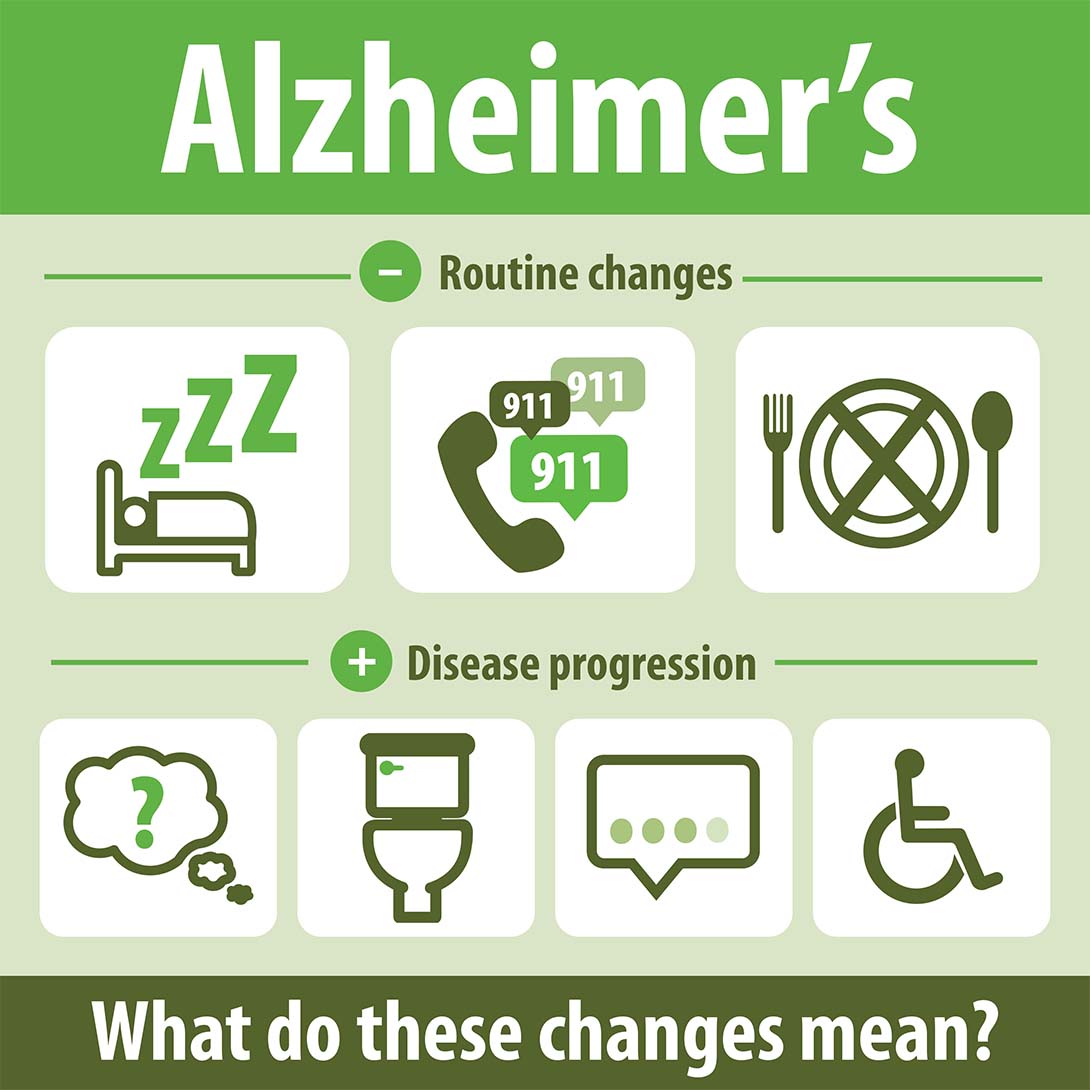9 Keys to Caring for a Spouse with Alzheimer’s

For better, for worse, for richer, for poorer, in sickness and in health, until death do us part.
When reciting these marriage vows, couples might picture early financial struggles as they get on their feet or holding a loved one’s hand through a lengthy illness, but few imagine the struggles of Alzheimer’s disease or other dementia. It’s a challenge that 1 in 3 seniors face.
The initial forgetfulness can be easy for a spouse to dismiss. Everyone gets a little forgetful when they get older, right? But too soon, the memory loss begins to disrupt everyday life as individuals begin to forget important information or ask for the same details multiple times with no memory of having been told before.
Many individuals in the early stages of Alzheimer’s will recognize the signs and begin to rely on memory aids or they’ll ask loved ones to handle things they used to do on their own. Others will withdraw or become angry as control of their memory slips from their grasp.
While memory loss is difficult enough to watch, a spouse may watch their love’s personality slip away, too. They can find themselves accused of theft or infidelity, arguing about the details of their lives, and attacked for being too controlling as they take on a caregiver role.

Caring for a Spouse with Dementia
Caring for a spouse with dementia is challenging no matter how much you love them. It can be particularly difficult if the caregiver has a serious or chronic illness of their own. Here are nine suggestions to make this difficult transition a little easier.
- Ask for help.
Spouses may be in this together, but they don’t have to go it alone. If family and friends offer to help with visits or errands, accept the help. Caregivers need time to take a break so they can bring their best selves to the situation. - Take advantage of community resources.
Meals on wheels, home health agencies, and the local Area Agency on Aging can help with meals, extra care, and adult day centers. Churches, synagogues, and other places of worship are also an excellent place to find support through the daily challenges a couple faces when one of them has Alzheimer’s disease. - Give yourself time to learn new skills.
If one spouse always handled the bills, housekeeping, or the lawn care, the other may find themselves struggling to take over these new tasks. Expect there to be a learning curve. Ask a family member or friend to help walk you through it. - Set realistic expectations.
One of the hardest things to accept with a spouse who has Alzheimer’s or another dementia is that they will never get better. Memories lost will not come back. Physical decline will continue. Daily schedules will need to revolve around when your spouse is most engaged – typically early in the day. Sticking to a routine and getting plenty of rest will help both of you. - Try not to argue.
When your spouse gets a date or detail wrong, don’t correct them or argue with them. If they say they want to go home while sitting in the living room you’ve shared for 40 years, say okay – then tell them you’ll leave in a little while when traffic is better. Redirection like this can help keep your spouse calm and happy. - Take a deep breath.
When your loved one doesn’t recognize you or accuses you trying to harm them or starts crying over a small issue, it’s going to be frustrating. Take a deep breath and remember it’s the disease talking, not your spouse. Your loved one is still inside that body. Be kind and try to connect in a new way by playing music they like and talking about times they remember from early in their life. - Approach intimacy carefully.
Intimacy can be tricky when a spouse has Alzheimer’s or other dementia. They may become more sexualized with their spouse, disrobe in public, or make overtures to someone new. Gently remind your spouse if their behavior is inappropriate or remove them to a private area. Couples will need to negotiate their own physical relationship as the disease progresses. In the early stages, sex may be a comfort for both individuals, but as the disease progresses and the spouse with dementia is no longer able to consent, hugs and hand holding may be a better way to connect. Speak with a doctor about whether medication can help with this transition. - 8. Get support.
Caring for a spouse with dementia who may no longer even remember your name is incredibly difficult. In-person and online support groups can help by providing advice and understanding from those who are in a similar position. - Forgive yourself.
There may come a time when you can no longer care for your loved one at home. It’s okay to move them to a facility that can provide them with the 24-hour care and protection they require. Continue to visit and continue to love them knowing that you have their best interest at heart.
Crossroads Hospice & Palliative Care provides support and hospice care for dementia. Please call 1-888-564-3405 to learn more about when an individual with Alzheimer’s or other dementia is eligible for hospice or palliative care.
If you found this information helpful, please share it with your network and community.
Copyright © 2019 Crossroads Hospice & Palliative Care. All rights reserved.




